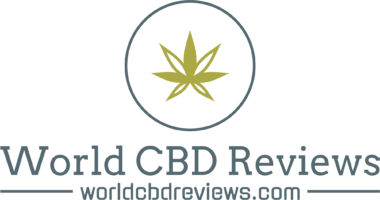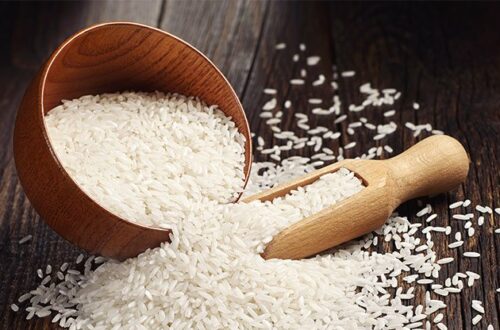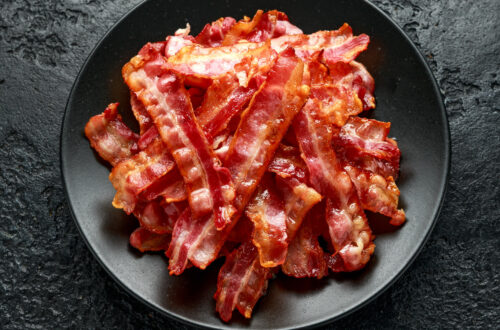Understanding Oats and Oatmeal
What Are Oats?
Oats (Avena sativa) are a type of cereal grain grown for their edible seeds. They are commonly consumed as oatmeal, rolled oats, oat flour, or oat bran. Oats are a rich source of dietary fiber, vitamins, minerals, and antioxidants, making them a popular choice for a nutritious breakfast or ingredient in various recipes.
Composition of Oats
Oats contain several components, including:
- Starch: The primary carbohydrate in oats, providing energy and contributing to the creamy texture of cooked oatmeal.
- Protein: Oats are relatively high in protein compared to other grains, with a balanced amino acid profile.
- Dietary Fiber: Oats are an excellent source of soluble fiber, particularly beta-glucan, which has been linked to various health benefits.
- Vitamins and Minerals: Oats contain vitamins such as B vitamins, including thiamine and folate, as well as minerals such as iron, magnesium, and zinc.
Are Oats and Oatmeal Gluten-Free?
Natural Gluten Content of Oats
Oats themselves do not contain gluten, which is a group of proteins found in wheat, barley, and rye. However, oats are often grown, processed, and transported in proximity to gluten-containing grains, leading to the potential for cross-contamination.
Gluten Cross-Contamination in Oats
Despite oats being inherently gluten-free, they can become contaminated with gluten during various stages of production and processing. This contamination can occur through shared equipment, storage facilities, transportation, and even in the field if oats are grown near gluten-containing crops.
Certified Gluten-Free Oats
To ensure that oats remain gluten-free and safe for individuals with celiac disease or gluten sensitivity, some manufacturers produce certified gluten-free oats. These oats undergo rigorous testing and adhere to strict guidelines to minimize the risk of gluten cross-contamination throughout the production process.
Health Benefits of Oats and Oatmeal
Despite the potential for gluten cross-contamination, oats and oatmeal offer numerous health benefits, including:
- Heart Health: Oats are rich in soluble fiber, particularly beta-glucan, which can help lower cholesterol levels and reduce the risk of heart disease.
- Digestive Health: The fiber content in oats supports digestive health by promoting regular bowel movements and feeding beneficial gut bacteria.
- Blood Sugar Control: Oats have a low glycemic index and can help stabilize blood sugar levels, making them suitable for individuals with diabetes or those seeking to manage their weight.
- Nutrient Density: Oats are packed with essential vitamins, minerals, and antioxidants that contribute to overall health and well-being.
Frequently Asked Questions (FAQs)
Are oats safe for individuals with celiac disease?
While oats themselves are gluten-free, individuals with celiac disease should opt for certified gluten-free oats to minimize the risk of gluten cross-contamination. It’s essential to check labels and look for certifications to ensure that oats are safe for consumption.
Can individuals with gluten sensitivity or wheat allergy consume oats?
Many individuals with gluten sensitivity or wheat allergy can tolerate pure, uncontaminated oats without experiencing adverse reactions. However, it’s crucial to choose certified gluten-free oats to avoid potential gluten contamination.
How can I incorporate oats into a gluten-free diet?
Oats and oatmeal can be incorporated into a gluten-free diet in various ways, such as:
- Enjoying oatmeal for breakfast topped with fresh fruit, nuts, or seeds.
- Using oat flour as a gluten-free alternative in baking recipes for cookies, muffins, or pancakes.
- Adding rolled oats to smoothies, yogurt bowls, or homemade granola.
Are all oat-based products gluten-free?
Not all oat-based products are gluten-free, as cross-contamination can occur during processing. It’s essential to look for certified gluten-free labels or products specifically labeled as gluten-free to ensure safety for individuals with celiac disease or gluten sensitivity.
Are steel-cut oats gluten-free?
Steel-cut oats are gluten-free, but as with other oat products, there may be a risk of gluten cross-contamination depending on the manufacturing process. Choosing certified gluten-free steel-cut oats is the safest option for individuals avoiding gluten.
Can I trust products labeled as “wheat-free” to be gluten-free?
While “wheat-free” products do not contain wheat, they may still contain other gluten-containing grains such as barley or rye. It’s essential to read labels carefully and look for certifications indicating that products are gluten-free to ensure safety for individuals with gluten-related disorders.
Are oats suitable for a low-carb diet?
Oats are relatively high in carbohydrates, so they may not be suitable for individuals following a strict low-carb diet. However, they can still be included in moderation as part of a balanced diet, especially considering their fiber content and nutritional benefits.
- What Is Better Than Tear Trough Filler? - May 31, 2025
- Profhilo Treatment Near Tandridge, Surrey - May 31, 2025
- Obagi Nu-Derm System Skincare Steps In Kingston Upon Thames Surrey London - May 31, 2025






